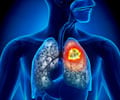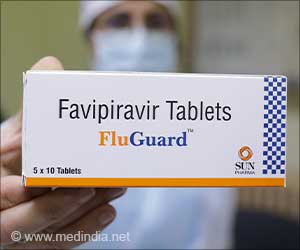- Non-small cell lung cancers (NSCLC) account for nearly 80 percent of lung cancers.
- Many treatment options are available including highly targeted therapies depending on the type of genetic mutation occurring in a particular patient.
- Scientists have developed a blood test that can identify these mutations in about three days and help initiate precise treatment without wasting precious time.
Aim of the Research
The developers of this novel test aim to provide doctors and patients with a rapid yet accurate blood test to reveal specific mutations that occur in different patients so that- Precise and targeted treatment can be delivered to these patients soon after diagnosis.
- Test can be performed in the community setting where there is otherwise no access to specialized diagnostic facilities.
- Results are available rapidly and customized treatment to suit the patient can be initiated much faster.
- The test can be used to monitor response to therapy and to identify recurrence.
- Patient outcomes will be better.
Methods and Findings of the Study
The developers of the test analyzed more than 1600 blood samples from patients mostly drawn from the community setting. The method used to identify the mutations is based on the partitioning of DNA into droplets in order to identify specific circulating tumor DNA mutations and RNA variants in whole blood.- EGFR sensitizing mutations – 10.5%
- EGFR resistant mutations – 18.8%
- KRAS mutations – 13.2%
- ALK mutations – 2%
The results were available within 72 hours of drawing blood, while tissue based methods take a few weeks, thereby delaying treatment unnecessarily.
Mutations In NSCLC That Are Responsive to Personalized Treatment
The various mutations in non-small cell lung carcinoma that can be targeted during treatment include mutations of epidermal growth factor receptor (EGFR) mutations, EGFR T790M mutation and anaplastic lymphoma kinase (ALK) rearrangements.
These mutations are referred to as actionable mutations. An actionable mutation is critical to the growth and spread of the tumor. By targeting these mutations using specific inhibitors, patient outcome can be markedly improved both in terms of reducing severity of the disease as well as prolonging survival.
"The described assay can detect actionable mutations in patients diagnosed with earlier stages of NSCLC, thereby improving clinical outcomes," remarked Dr. Pestano.
The icing on the cake is that the facility for performing these tests can be established in the community setting thus saving precious time otherwise spent in traveling to specialist centers, and waiting for the time consuming tissue based results.
In the words of first author Hestia Mellert, PhD, Director of Molecular Development at Biodesix, Inc. "Physicians in remote locations may now have greater and more rapid access to this critical patient information. These data highlight the adoption of mutation testing by the lung cancer community and demonstrate the utility of a centralized laboratory for the evaluation of actionable mutations from blood."
References:
- Targeted Therapy Drugs for Non-Small Cell Lung Cancer - (https://www.cancer.org/cancer/non-small-cell-lung-cancer/treating/targeted-therapies.html)
Source-Medindia















